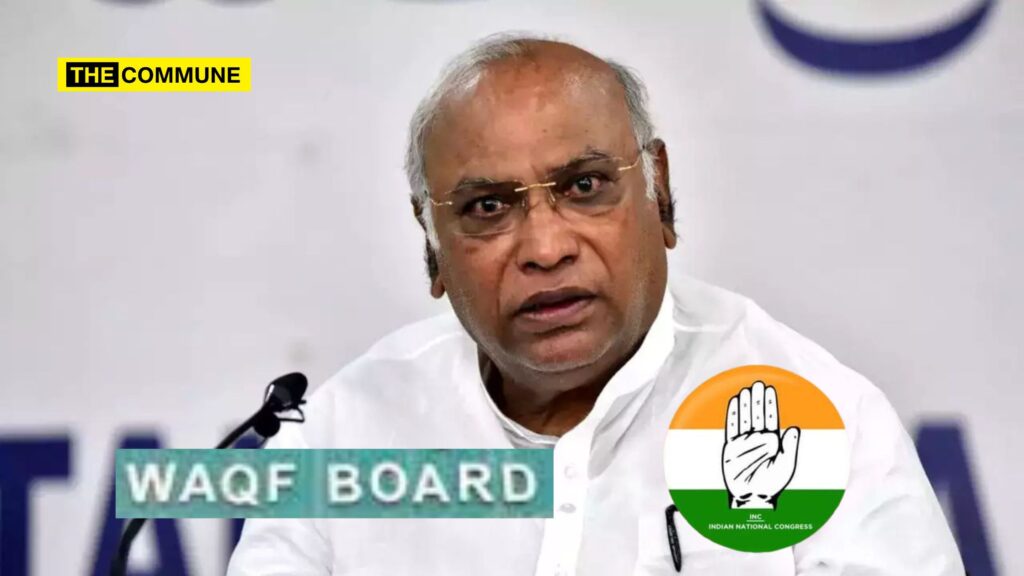On 14 October 2024, several opposition MPs exited a parliamentary committee meeting regarding the Waqf (Amendment) Bill, voicing concerns that the committee was not adhering to proper parliamentary procedures. This followed allegations from the BJP accusing Congress president Mallikarjun Kharge of involvement in a Waqf land scam.
The Joint Parliamentary Committee, which has previously experienced significant tensions between BJP and opposition members, saw further disputes when opposition MPs protested against the participation of representatives from Hindu organizations, arguing that the legislation mainly impacted Muslim religious properties.
#BreakingNews | Opposition MPs accuse JPC Chief of pursuing partisan agenda
'
News18's @payalmehta100 shares details@kritsween | #JPC #Waqf #Kharge pic.twitter.com/27MoQe2P2D— News18 (@CNNnews18) October 14, 2024
The walkout was triggered by testimony from Anwar Manippady, former chairman of the Karnataka State Minorities Commission and current Karnataka BJP vice-president. Manippady claimed that several Congress politicians, including Kharge and Rehman Khan, were implicated in the misappropriation of Waqf properties in Karnataka.
Yesterday, Anwar Manippadi, former office bearer of the Karnataka Minorities Commission, while deposing before the Joint Committee of Parliament on the Waqf (Amendment) Bill, mentioned Congress President Mallikarjun Kharge, over ‘allotment’ of Waqf land.
Given Kharge family’s…
— Amit Malviya (@amitmalviya) October 15, 2024
Additionally, Rahul Kharge, the son of the Congress president, recently withdrew a request for land intended for a Multi Skill Development Centre in Bangalore. His trust, Siddhartha Vihar Trust, had applied for the land from the Karnataka Industrial Development Board in February 2024. However, he retracted the request after revelations regarding the ongoing MUDA scam, which involved the wife of Karnataka CM Siddharamaiah, who returned 14 parcels of land amid police investigations against her, the CM, and his brother-in-law.
Following these events, the BJP alleged that the Congress leadership was deeply involved in land transaction corruption, urging their resignations on moral grounds. BJP spokesperson Sudhanshu Trivedi sharply criticized the Congress, contrasting its historical connection to land donation through figures like Mahatma Gandhi and Vinoba Bhave with its current involvement in land grabbing, supposedly under the influence of Sonia and Rahul Gandhi.
Opposition MPs argued that parliamentary standards prohibit making unfounded accusations against individuals, especially in their absence. They also criticized Manippady’s request for Muslims to support the proposed amendments, labeling it inappropriate and offensive.
“Such allegations should not be made without the accused being present to defend themselves,” asserted one opposition MP, as reported by PTI. Despite these objections, committee chairperson Jagdambika Pal of the BJP dismissed the concerns and allowed the testimony to continue, claiming it was relevant to the legislation under discussion.
Opposition MPs, including Congress leaders Gaurav Gogoi and Imran Masood, DMK’s A. Raja, Shiv Sena’s Arvind Sawant, AIMIM’s Asaduddin Owaisi, Samajwadi Party’s Mohibbullah, and AAP’s Sanjay Singh, reportedly walked out in protest against the proceedings.
Shiv Sena MP Arvind Sawant expressed to the media that the committee was not adhering to established rules and protocols. Following this, opposition MPs convened separately to strategize their next steps, including plans to address their concerns with the Lok Sabha Speaker. A significant point of contention was the committee’s decision to invite several Hindu organizations to provide input on the Waqf (Amendment) Bill. Opposition members argued that these groups should not be involved in discussions related to Waqf issues, which pertain specifically to Muslim religious endowments.
In contrast, the BJP supported this move, asserting that these organizations had legitimate concerns about the implications of the Waqf law on non-Muslim properties, including temple lands. They argued that such consultations were essential for a comprehensive review of the legislation.
AIMIM chief Asaduddin Owaisi had previously written to committee chair Jagdambika Pal, opposing the involvement of groups like Sanatan Sanstha and Hindu Janajagruti Samiti, which he accused of promoting extremist ideologies. In his letter, Owaisi emphasized that these organizations advocate for a “Hindu Rashtra” and have engaged in actions against the Indian state.
Other witnesses called to testify included prominent lawyers Vishnu Shankar Jain and Ashwini Upadhyay, along with Mahant Sudhirdas Maharaj from Maharashtra’s Kalaram Temple. Conversely, Mehmood Madani from Jamiat Ulema-e-Hind voiced opposition to the proposed amendments to the Waqf Bill.
Opposition MPs have previously raised concerns that key stakeholders were being ignored and that political maneuvering was occurring under the guise of the proceedings. Dr. Mohammad Jawed, a Congress leader in the Lok Sabha, expressed on social media that the inclusion of non-Muslim religious organizations in the discussions should be reconsidered.
“During the recent committee meetings, representations from various non-Muslim organizations have been invited. I believe this practice needs reevaluation, as these groups neither contribute to Waqf properties nor have a legitimate interest in these matters. Many of them hold biased views that misrepresent the true essence of Waqf, causing distress within the Muslim community and potentially undermining the sentiments of India’s Muslim population,” the MP stated.
He also pointed out that in discussions concerning other religious communities, Muslim representation is not typically solicited, questioning the rationale for this approach when the matter specifically pertains to Muslims.
Additionally, last month, BJP MP Nishikant Dubey, a member of the Joint Committee on the Waqf Bill, caused controversy by writing to Pal with serious concerns over the high volume of submissions received on the issue. He requested that the Union Home Ministry investigate, including the geographic origins of these submissions.
Dubey suggested that “fundamentalist groups,” individuals like Zakir Naik, or even foreign entities such as the ISI or China could be involved, given the receipt of 1.25 crore submissions. He argued that if such forces were manipulating the legislative process, it would pose a threat to the integrity of the parliamentary system and national security.
(With Inputs From OpIndia)
Subscribe to our channels on Telegram, WhatsApp, and Instagram and get the best stories of the day delivered to you personally.

